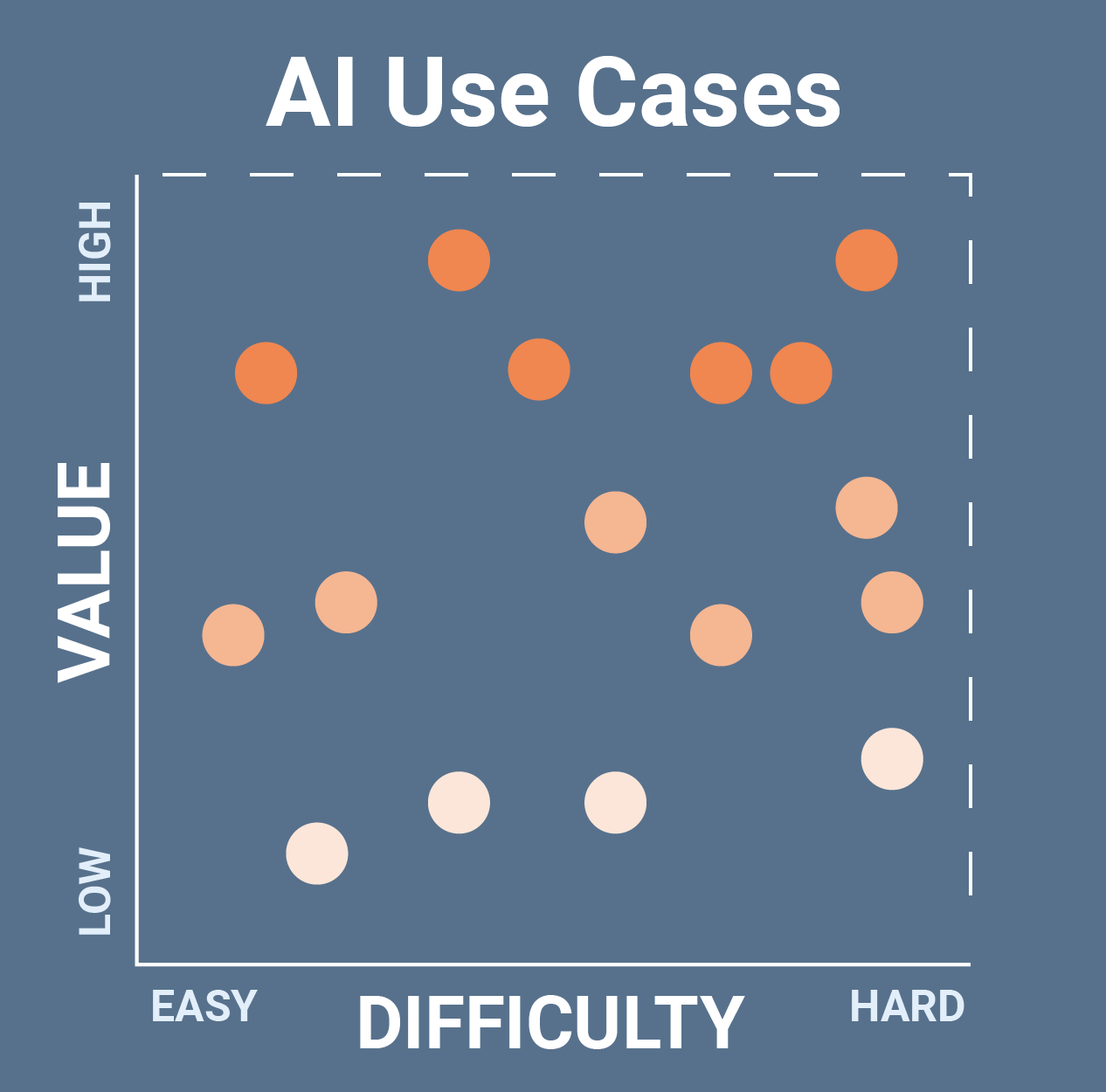Companies planning to be AI-driven will find pragmatic advice in Best Practices: Scaling Data Science Across The Enterprise, a report from industry analysts at Forrester Research. Author Kjell Carlsson, Ph.D. identifies three key takeaways in the report: enterprises struggle to expand data science across the organization; without alignment, data science projects fail to drive outcomes; adopt five best practices to scale data science.
In this blog post, we’ll investigate the first of Forrester’s best practices: prioritize projects that target large, well-defined business outcomes. Kjell’s research reveals that a “let’s get started and see what we find” approach is common in corporate data science. Such an undirected approach is commercially naive: returns from investments in data science will be inconsistent at best, and it risks a loss of confidence in AI as a source of value.
Greg Michaelson, VP at DataRobot offers practical advice on how to align data science investment with strategic plans for growth.
“First,” says Greg, “identify all the potential AI use cases across the company, calculate the potential value of each with particular focus on contribution to company earnings. Next, plot these in a two-by-two matrix against their degree of difficulty.”

Analyzing AI use case business value against degree of difficulty
High value and easy projects should be given priority. Kjell advises that successful teams “find stakeholders who will benefit, a lot, from the project” because these individuals “are more likely to be engaged, advocate for resources, and adopt any resulting solution because it is materially important to them”. Greg recommends assigning these projects to collaborative teams: “The role of data science specialists is to mentor colleagues who bring strong complementary skills to the project. Typically, these are business analysts, data engineers, and software developers. Teams able to draw on a range of skills and business experience and who collaborate with automated machine learning, are in the best position themselves to deliver AI of immediate value”.
While projects identified as being of low business value and easy may appear unpromising, Greg advises otherwise. “Becoming AI-driven is transformative, and that means everyone is learning new skills. Low value but easy projects are ideal starting points for teams new to data science, particularly those with no permanent data scientist member”. When trained in DataRobot, these teams gain confidence that they can execute projects from start to finish. Quickly succeeding with these projects helps a company to build momentum as an AI-driven enterprise.
Low value and difficult projects are sidelined. It may be that advances in automated machine learning will reduce their degree of difficulty at some later date, but for now they can be ignored.
High-value projects identified as difficult deserve further consideration. Greg counsels executives to dig deeper. “Ask questions! Why is this project so difficult? What are the blockers to success – is it people, or the need for operational change management, or IT systems, or data”? It may then become obvious that one characteristic of the current operating model is blocking multiple high-value projects. Executive actions such as planning a new infrastructure project, or making a strategic investment in change management, or defining a new data acquisition strategy might remove a blockage and reduce the difficulty of tackling a raft of new high value AI projects.
Industry Analyst Report
The Forrester Wave™: AI/ML Platforms, Q3 2022
Download Now
About the author
Bob Laurent
Sr. Director of Product Marketing at DataRobot
Prior to DataRobot, he ran product marketing at Alteryx, where he was responsible for driving awareness and growing a loyal customer base of empowered data analysts. He has more than 20 years of marketing, media relations, and telecom network engineering experience with Fujitsu and NYNEX (now Verizon). Bob resides in Dallas with his wife and two boys, and holds a Bachelor of Science degree from Clarkson University, plus an MBA from New York University’s Stern School of Business.








